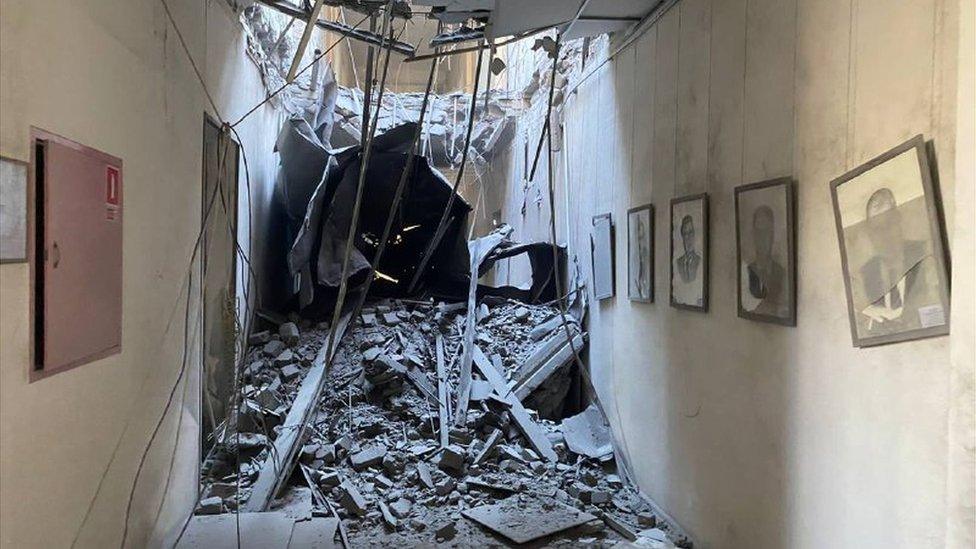Ukraine war: Putin meets generals as Russian missiles pound cities
- Published
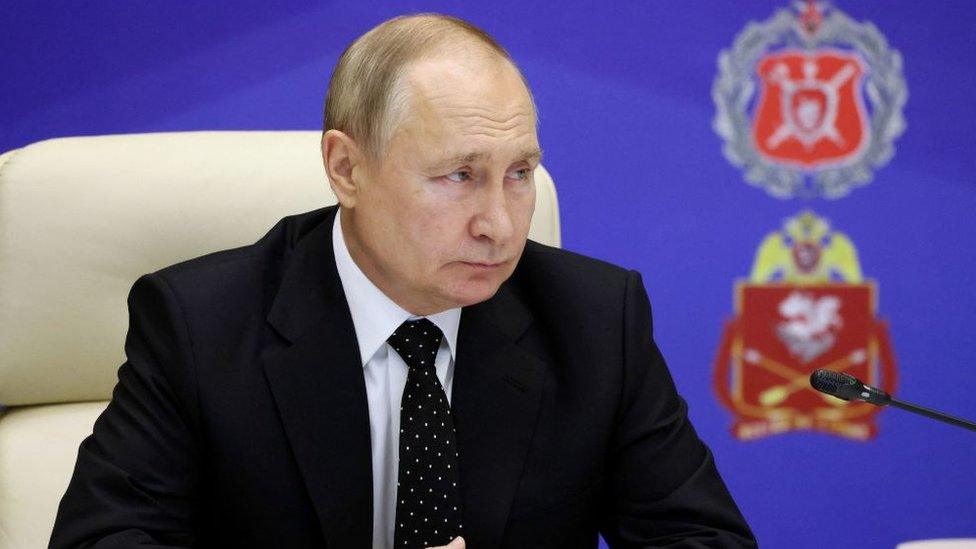
Russian President Vladimir Putin has met his military chiefs on the same day his forces launched another wave of missiles at Ukraine's infrastructure.
Mr Putin spent most of Friday at the headquarters of the "special military operation" discussing ideas for what Russia's next move should be.
It comes as some Ukrainian military officials claimed Russia was planning an offensive, perhaps early next year.
Russian attacks on Ukraine's power grid have plunged millions into darkness.
Footage from Friday's meeting showed Mr Putin flanked by Defence Minister Sergei Shoigu and Armed Forces Chief Valeriy Gerasimov.
"We will listen to the commanders in each operational direction, and I would like to hear your proposals on our immediate and medium-term actions," the Kremlin leader was seen telling military officials on state TV.
Gen Gerasimov's presence ends rumours circulating online that he had been dismissed from his position. The 67-year-old has been the target of intensive criticism from hawkish commentators, who have accused him of being too cautious.
Air Force general Sergei Surovikin - who was appointed as Russia's commander in Ukraine in October - was also present at the meeting, photos released by state media showed.
Ukrainian forces have made a series of major advances in recent months, including retaking Kherson - the only regional capital captured by Russian forces so far.
And the collapse of Moscow's forces in eastern Ukraine earlier this year saw military bosses come in for sustained criticism from pro-Kremlin media figures.
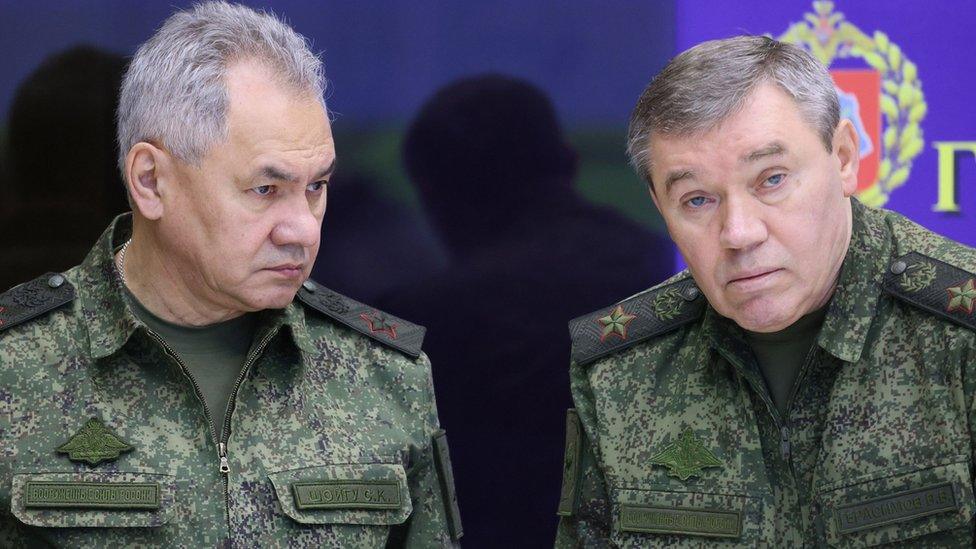
There had been reports that Armed Forces Chief Valeriy Gerasimov (R) had been dismissed
The meeting followed claims by the commander of Ukraine's military, Gen Valerii Zaluzhnyi, that Moscow could seek to launch a new offensive in early 2023. He warned that Russia was preparing around 200,000 troops for the attack.
"I have no doubt they will have another go at Kyiv," he added. "I know how many combat units I have right now, how many combat units I have to create by the end of the year - and, most importantly, not to touch them in any way now. No matter how hard it is."
He added that the attack could originate "in the direction of Kyiv" and may be launched from Belarus.
In February, Russian troops advanced towards the Ukrainian capital Kyiv after crossing the border from Belarus.
While the country's leader Alexander Lukashenko has repeatedly denied that his forces will join in the invasion, thousands of Russian troops are currently in the country taking part in what Moscow's defence ministry called "intensive combat training".
Mr Putin will visit his Belarusian counterpart in Minsk on Monday.
But analysts have questioned Russia's ability to launch a new offensive on the Ukrainian capital, and White House spokesperson John Kirby said that US intelligence officials "aren't seeing any indication that there's an imminent move on Kyiv".
Senior US defence officials told Reuters news agency that Russia had been forced to use decades-old ammunition with high failure rates as it burns through its supplies.
They added that "the rate of fire that Russia has been using its artillery and rocket ammunition" could see them run out of reliable munitions by early 2023.
Meanwhile, Ukraine's President Volodymyr Zelensky said on Saturday that power had been restored to nearly six million people after the latest wave of Russian strikes to hit the country's energy grid.
Kyiv Mayor Vitali Klitschko said the city's metro system had restarted and the water supply had been restored.
He also posted photos on Telegram of a large Christmas tree that has been adapted to meet the constraints of a wartime winter. The tree will be lit with energy-saving bulbs run off a generator, he said.
Power has also been restored in the country's second city of Kharkiv, authorities said, after it was left without electricity for hours following Friday's wave of strikes that targeted energy stations across the country.
Russia has launched more than 1,000 missiles and Iranian-made attack drones since the wave of strikes on power infrastructure began on 10 October. International leaders - including French President Emmanuel Macron - have said the strikes amount to a war crime.
The UK's Ministry of Defence says there had been an "uptick" in Russia's campaign of long-range strikes against Ukraine's critical infrastructure in recent days.
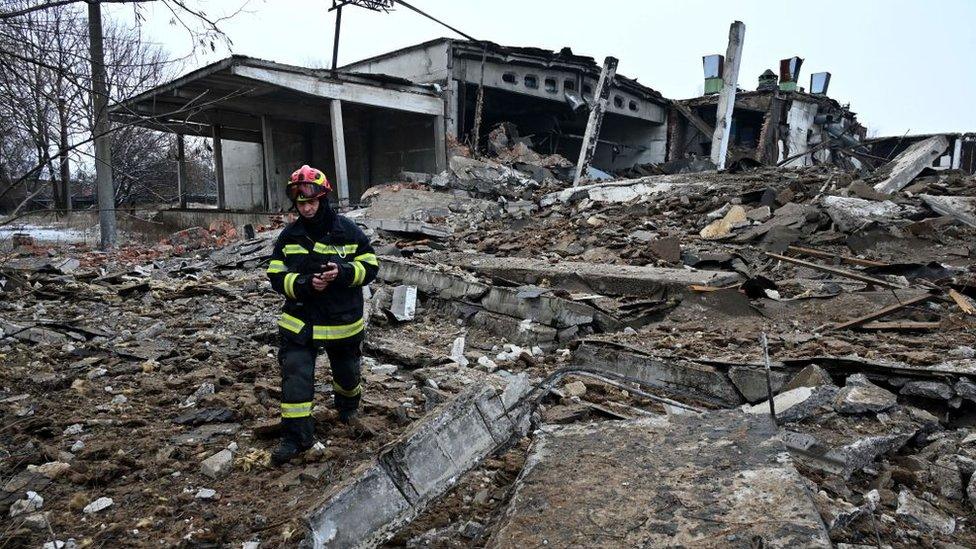
Kharkiv's mayor said the city suffered "colossal" damage after the latest barrage of strikes
- Published17 December 2022
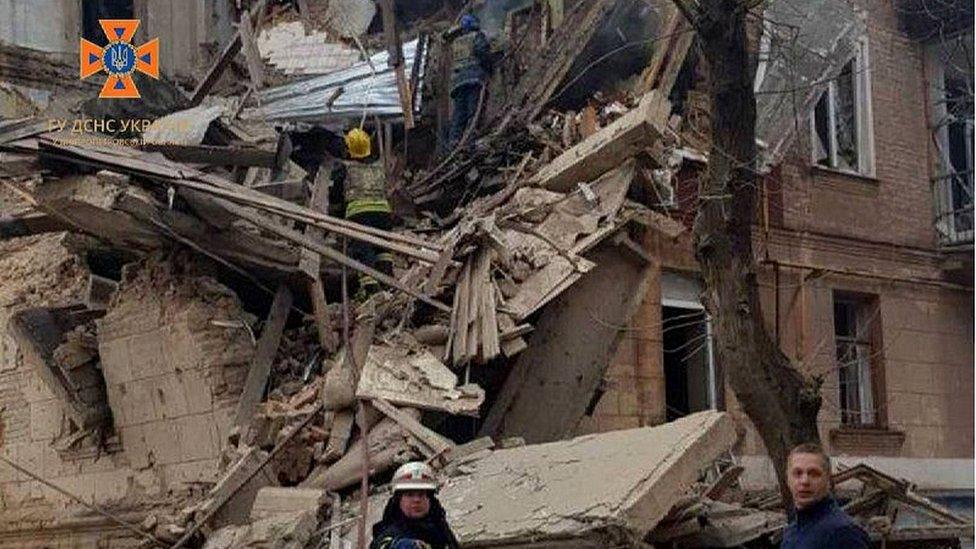
- Published15 December 2022
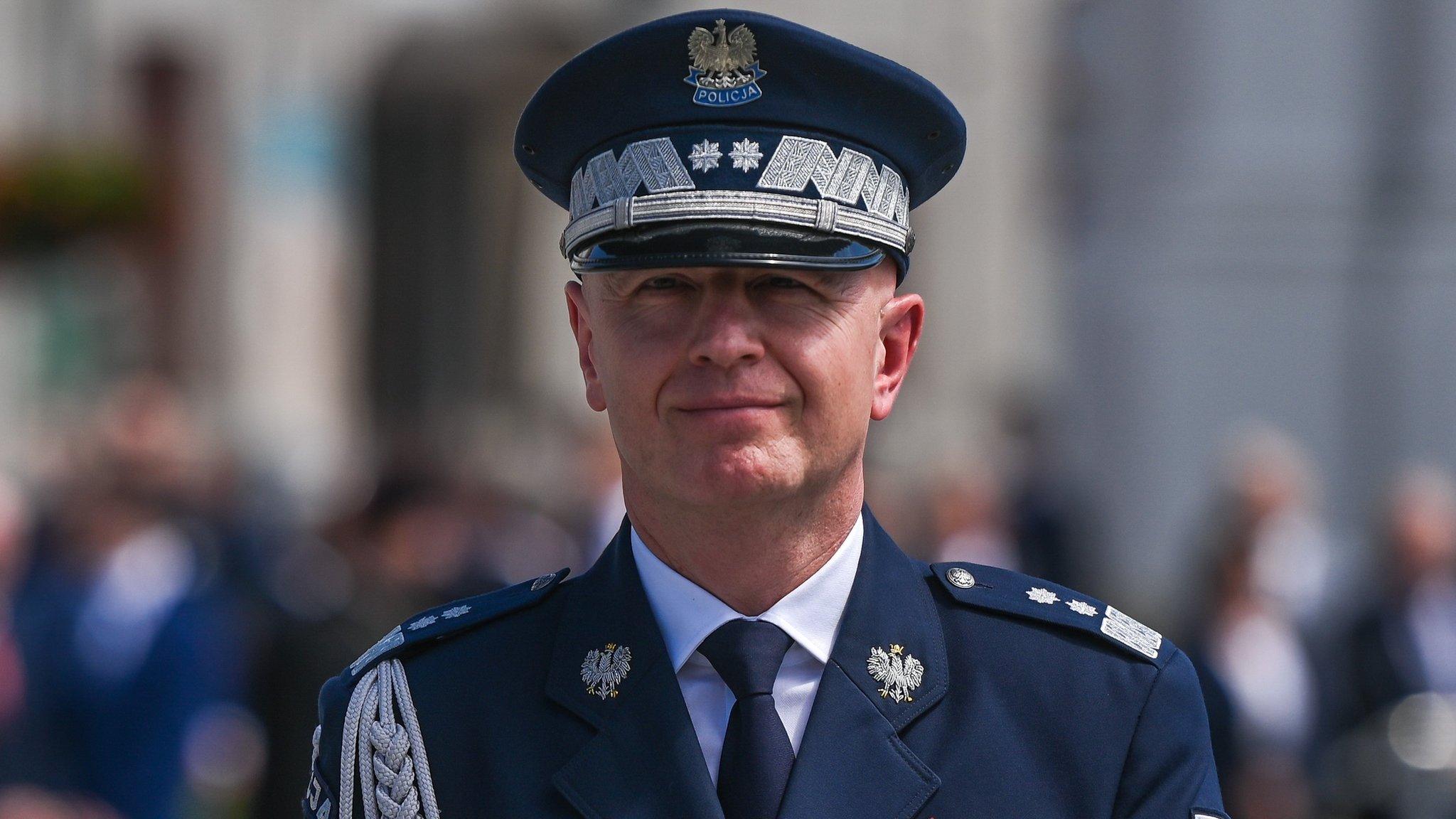
- Published15 December 2022
